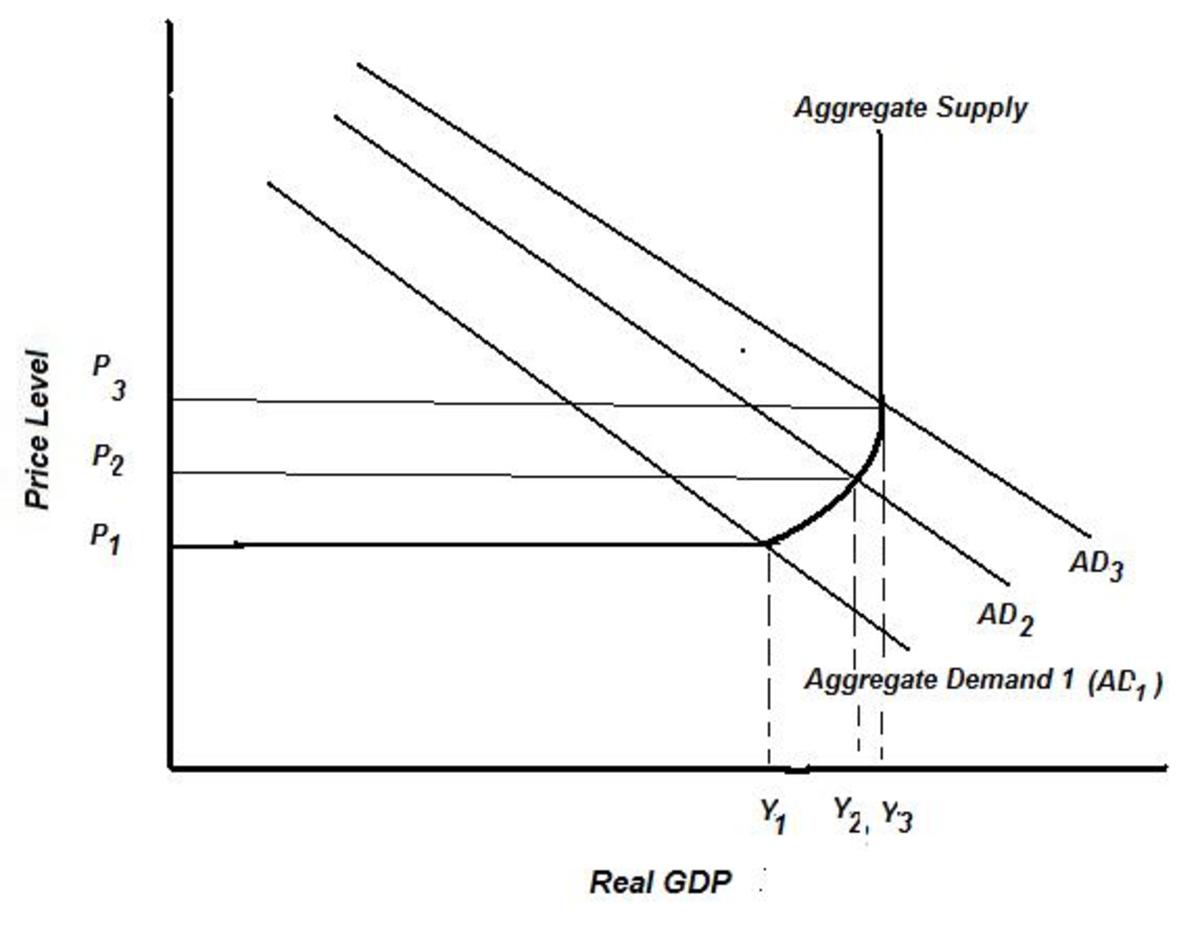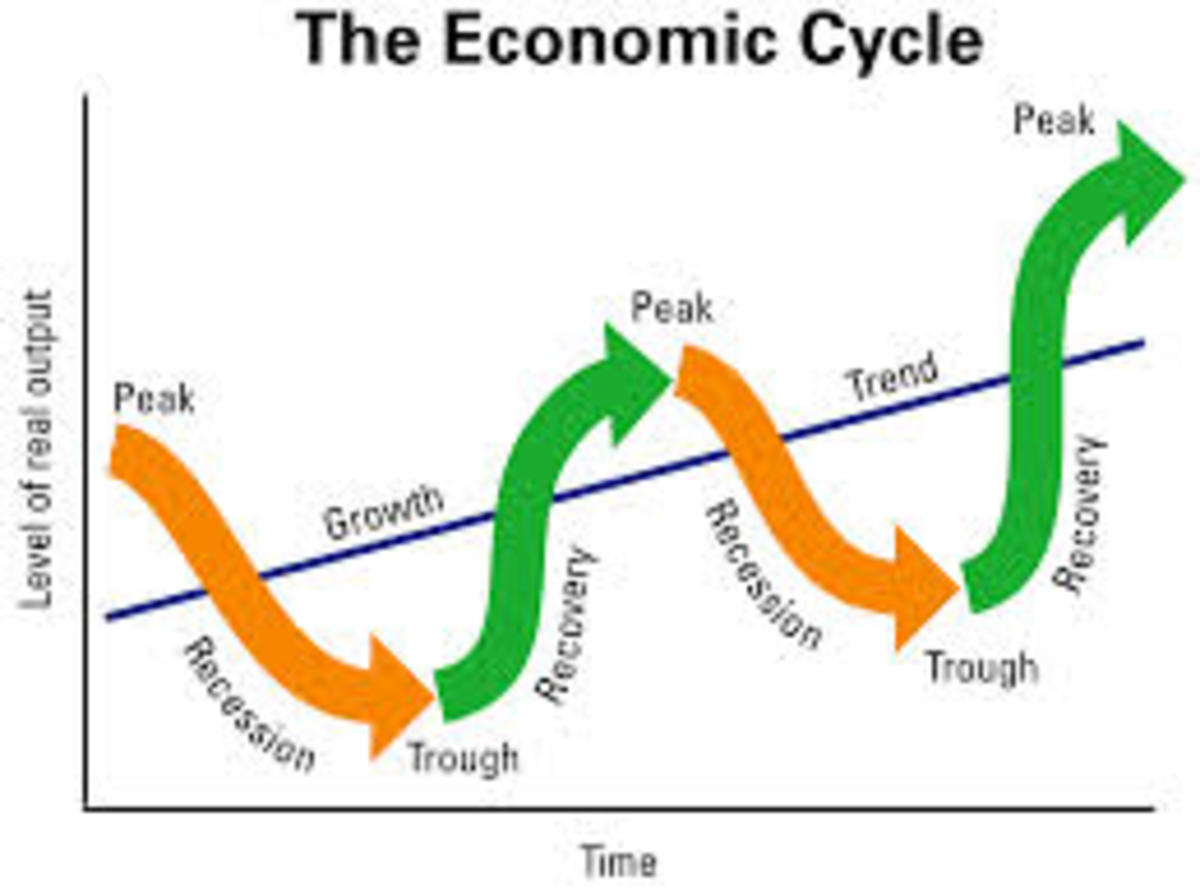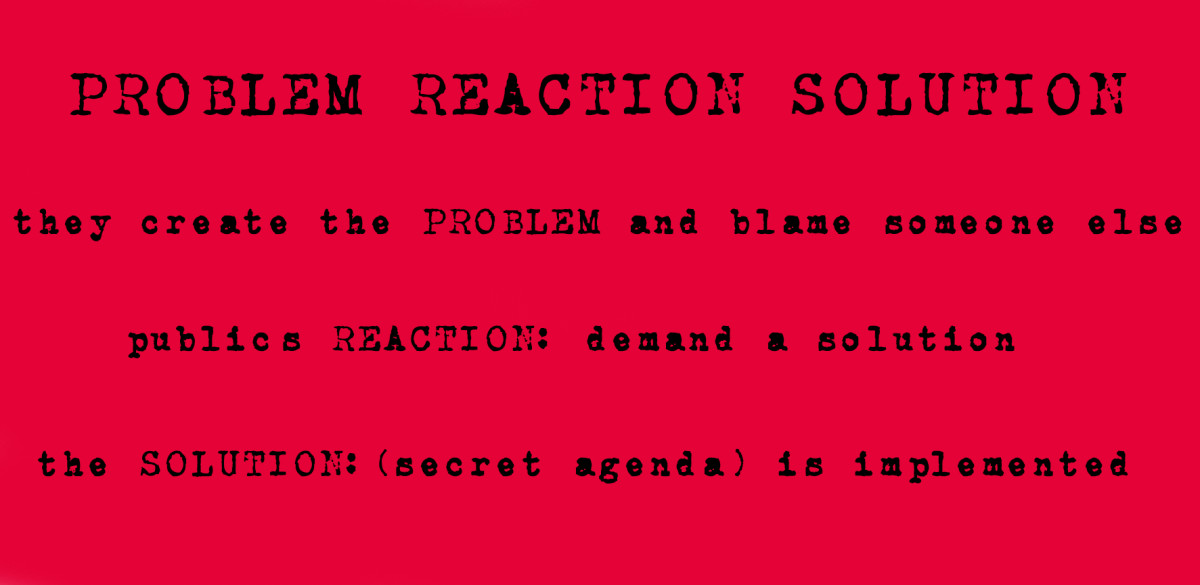Legislating Morality
Morality and economy as part of a complex feedback loop

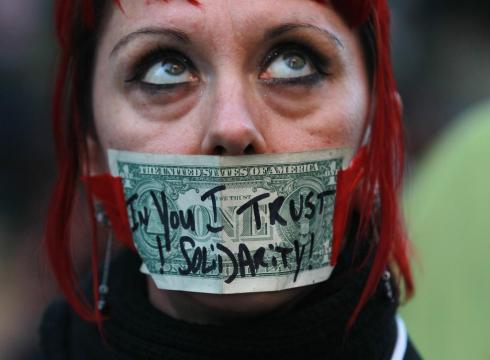

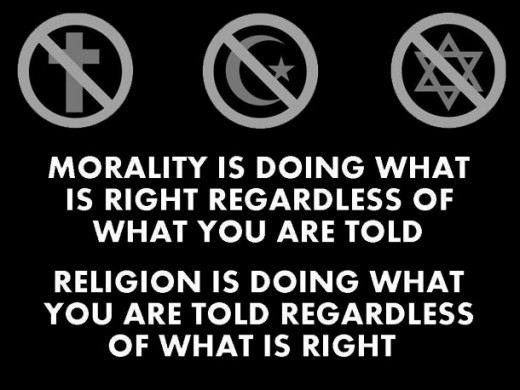
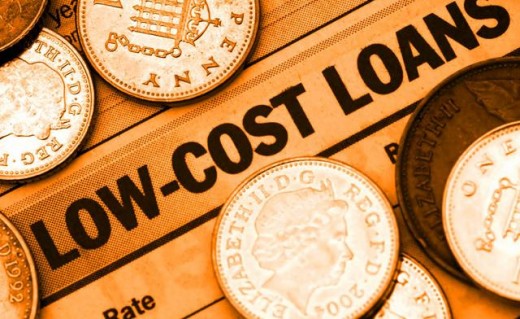
The Myth and the Reality: Morality vs Economy
One of the ideas behind conservatism and neoconservatism or neocon is to improve the world through morality. This in contradistinction to the left that sees the solution in improving the world by improving the economy. The improving of the world through morality is effected by the creation of laws and in oppressive regimes, with the help of a police of military state. But this enforcement of morality is not done by example but by the force of law upon the majority while those who have the laws made are immune from them and usually end up being corrupt and outside of law and morality they impose on everyone else. Many people see the hypocrisy in this and some protest against this flagrant double standard. On the other side of the coin is the approach to fix the economy without recourse to morals, but this is not the path of the neoconservative. The approach of the neoconservative is more and tougher laws to legislate morality, which does not work for no other argument than the one where more laws are created as a fix to those seen as ineffective.
Out of the current round of legislation post 9-11 is a whole flock of acts designed to enforce morality through the use of fear. Since October of 2001, barely a month after the tragic attack on the World Trade Center, several major pieces of “anti-terrorist” legislation have passed into law. These are the Patriot Act, the Homeland Securities Act, The elimination of the right of Habeus Corpus, the Extradition Act and now the National Defence Authorization Act (NDAA) and Stop Online Piracy Act (SOPA). This is a lot of the legislation of morality spread out over the Bush and Obama administrations in a period of a little more than a decade. There is a huge amount of speculation as to what the intent and direction of all these new laws, but one thing is becoming clear and that is the emergence of a new world wide police state. It is significant that the most frightening parts of the legislation production, the NDAA and SOPA have emerged post Sept. 2008 when the economy started to disintegrate. This one fact demonstrates that there is a clear link between economy and legislating morality.
But, legislating how people are to behave has never worked in past and is not likely to work in the present and future. A classic case in point is prohibition, where the US “went on the waggon” in a bid to eliminate intoxication due to alcoholic consumption after a prolonged campaign by various pressure groups to have alcohol made illegal. This came to pass in the Volstead Act of 1920 that extended to 1933 when it was stricken down. During that time, alcoholic consumption and the criminal underworld increased significantly. It was also the era of raids and “Speak easy” clubs where people could feel more comfortable in speaking what they think and also to drink a banned substance. The Volstead Act had the opposite effect to its intent of legislating morality, that is, under it's legal influence, the “immorality” of excessive alcoholic consumption increased instead of decreasing. There are other examples all around the world of the same effect (1).
Today, there are all kinds of laws to legislate morality, but they work primarily on fear. Fear is engendered through the use of the police state. The police and military are given sweeping powers to enforce morality, but this is a morality superimposed upon a fearful and legislated mass from the power elite who are not bound by the same enforced morality. So morality in this case is not genuine morality and loses a lot of its truth in the political and economic arena. When the economy gets tough and there are bankruptcies galore, the CEOs and bankers get bailouts and the masses get austerity. Yet, despite the austerities, the economy gets worse, because the source of the problem has not been addressed, that is, the immorality of the oligarchs who continue to increase their wealth while the rest sink into poverty. Yet, it is the majority that collectively suffer under austerity while oligarchs gamble in the casino economy. It is the majority that suffer as a result of the immorality of the few. The legislation designed to control the morals of the masses, do not control that of the oligarchs. It is the oligarchs who manipulate the political process to legislate those on the bottom of society so they can continue with their economic manipulations to see which individual gets to own the planet and all that is in it.
Part of the process comes by way of making corporations individuals with all the freedom and rights allotted to real individuals under constitutions and civil rights. A growing awareness among the oppressed has discovered this secret and they are now actively engaged in undoing this situation to restore the constitution and civil rights to real people as opposed to corporate entities. This is where economics impinges upon legislating morality. It is neither morality alone, nor economics alone that governs the direction of society, but both operating together as a unified manner. It cannot be otherwise as history demonstrates where one predominates over the other and visa versa. Nor can morality be superimposed over others, while the one doing the legislation is excluded from the effects of that legislation without the risk of a backlash. The real moral imperative must come from within each and every individual governing themselves responsibly, recognizing that they share this world with all other beings with tangible rights. Moreover, since we live in a materialist world, we have to recognize that economy does run society as a whole and that as a community, we all share in it together.
One of the most telling junctures between economy and morality is the existence of usury/interest charged on loans made for a host of purposes and from a variety of sources from prime rate interest loans from big banks to the gouging practices of loan sharks and payday loan companies. Usury, also known as interest, is condemned in the Bible and many prominent nations in the developed world claim to be Christian and base themselves on the moral guidelines of the Bible. Yet on the questions of making loans at interest is hardly even dwelt upon. It is interest charges that were ultimately behind the economic collapse of 2008/09 and the current economic mess the world is in. High interest rates compounded on massive loans made the loan plus accrued interest impossible to pay off. The greed motivated practice to generate wealth “out of thin air” by forcing loan payers to return far more than what they borrowed means that the loan being paid back must be based on actual wealth that comes from real values made from raw and processed resources. The accrued interest also means that the total money supply is devalued as more has to be created to cover the need of the supply. The real money in deposit is very small compared to the money lent at interest. This is what is referred to as fractional reserve banking. The money supply appears to be expanding, but it is similar to the expansion of a balloon and thus the apt term to describe many economic indicators such as housing or inflated stocks. Real value does not expand anywhere near as fast as the money supply. There is, for example, only so much gold in the world, which is one reason why the price of gold soars in inflationary times.
So what happens when the money supply balloons from compounded interest and the generation of bigger loans to cover smaller bad loans at interest? As the money supply increases, the real value that is relatively fixed, decreases the value of the money supply per unit. Thus, the consumer ends up having to pay more today for a commodity than they did yesterday. Those who were comfortable yesterday, are in poverty and feeling the pinch today. The banks who receive the loan payments get back more than they lent out and this is almost universal. The result is that a few people syphon off a little more of the real value each day at the expense of everyone else. This comes from interest on the loans and through foreclosure and repossession over defaulted loans. If you or I steal a DVD or a car, it is an indictable offence and seen as immoral and has legally defined punishments. If a bank fails due to a high percentage of bad loans, it gets bailed out and no one is charged with theft from millions caught one way or another, by the speculation of the banks and market.
When housing prices fall and mortgages are devalued, the mortgage holder still has to pay on the old higher rate, though they could not hope to sell except at a substantial loss. Mortgages are often difficult to renegotiate when the housing market collapses and devalues all properties. This occurs due to a large number of defaults such as happened in 2008 that ended up causing big insurance firms and banks to teeter on bankruptcy until they were bailed out by a bigger bank. The problems are by no means limited to the housing market. There are a lot of other economic bubbles as well and many financed to the hilt with big loans. One of the biggest is the credit card bubble that is quickly being maxed out across the developed world. With slumping income and rising prices, many are forced to make ends meet with credit card debt. With no changes to the positive, this kind of activity is unsustainable. The greed to get that extra value out of the market by money manipulation conjoins the economy to morals, or in this case, the lack thereof. Here too, we have seen the futility of legislating morality in order to improve the economy. Legislation of morality usually takes the form of austerity measures applied toward that sector of society the produces all the real wealth. Increasingly, the majority of us have to work harder and harder for less and less and yet the economy continues to sour with escalating debt. The failure to apply real morality toward the economy has led to a world wide economic disaster. Morality and economy must work together as they will not work separately. These are the really important lessons of history that have so far plagued humanity through the ages and as yet unresolved.
References:
This has to be the pit of economic immorality and some of the reasons why.
- Loan Shark
Difficult economic times drive many people to desperate measures. Unfortunately, there are unscrupulous people ready to take advantage of this desperation by offering loans at extremely high interest. If you fall behind in loan repayment, they will i - BBC News - Newsnight - Capitalism \'nothing to do with responsibility\'
Capitalism is only concerned with growth and making profit, not responsibility, the Marxist historian Eric Hobsbawm tells Newsnight's Jeremy Paxman.

